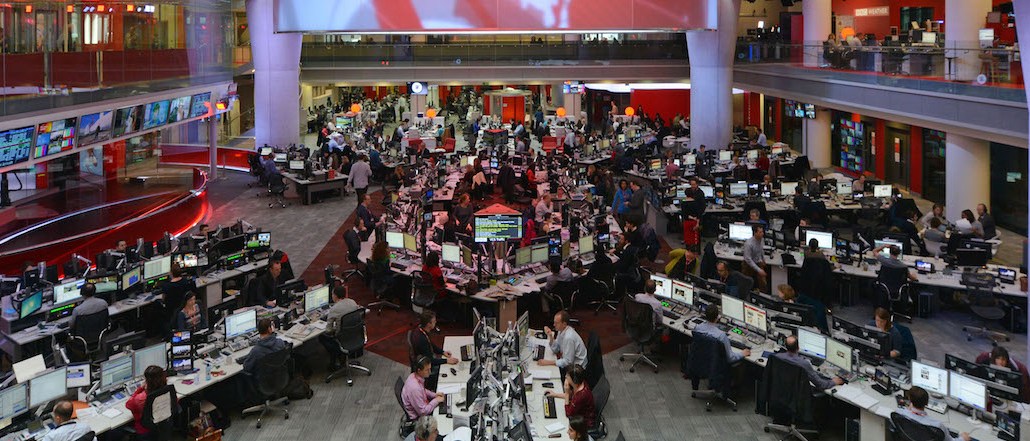Save 50% on a 3-month Digiday+ membership. Ends Dec 5.

The BBC is taking a stronger stance on fighting the online spread of misinformation, having launched a dedicated lie-debunking unit at the heart of its newsroom.
Currently, half a dozen people have been assigned to the team, and plans are afoot to double that, according to BBC News editorial director Jamie Angus. The new team’s set-up involves picking stories that aren’t verified or are masquerading as real news, and create in-depth text articles and videos, published under the Reality Check sub-brand and introduced by the BBC during the EU Referendum when a Brexit-spooked readership’s faith in facts was tanking.
Prioritizing what to focus editorial resources on has been gradually changing the BBC newsroom’s workflow dynamics, according to Angus. Determining which mistruths the investigative team will focus on debunking is now front and center at the morning news meeting discussions, where it wouldn’t have been a year ago.
“The kind of questions we need to ask for Reality Check changes the workflow,” said Angus. “The question of what disputed matter can we get to the bottom of today, and how can the Reality Check format be a part of that has become a central news question in our morning conferences.”
Ramping up the Reality Check format goes hand in hand with the BBC’s recent commitment to generating what it calls “slow news.” That doesn’t mean a shift away from its signature breaking news, but that more resources will go into publishing longer, in-depth text pieces, and video explainers along with data visualization and statistics-led pieces that take longer to produce.
The BBC has typically avoided putting resources toward debunking what it deems glaringly obvious false news. One of the more glaringly phony news pieces that circulated in the run-up to the U.S. presidential election, for example, was that the pope had endorsed Donald Trump. Instead, focus will go toward murkier alternative facts. “We can’t fact-check the internet; it has to be an editorial-led process,” added Angus.
Although the format was previously used solely for domestic stories relating the the EU Referendum, the format has been extended to focus on more global topics. In the last week, Reality Check articles have been published such as “Reality Check: Did millions vote illegally in the U.S.?” and “Reality Check: The U.S. and refugees.”
Ad position: web_incontent_pos1
Angus believes the BBC’s debunking output can give it a competitive edge internationally, particularly Stateside, where its remit is different — and more commercially focused — compared to the U.K. “U.S. audiences are turning to BBC News because the question of what does the rest of the world make of what’s happening there is ringing in people’s heads,” he said.
The team will use its own reader traffic and engagement to determine where to focus the Reality Checks, although Angus stressed that it won’t just use click-through rates as an indicator of where to focus. Currently, a couple of Reality Checks are published a day, though that will ramp up and formats will be expanded to what works on social platforms. The BBC already frequently publishes Facebook Live videos and will likely use this tool to create more Reality Check-style programs.
That said, focus will be on quality, not volume. “We are not about breathless speed for the sake of it, but about curating an editorial offer,” added Angus.
More in Media

What publishers are wishing for this holiday season: End AI scraping and determine AI-powered audience value
Publishers want a fair, structured, regulated AI environment and they also want to define what the next decade of audience metrics looks like.

Digiday+ Research Subscription Index 2025: Subscription strategies from Bloomberg, The New York Times, Vox and others
Digiday’s third annual Subscription Index examines and measures publishers’ subscription strategies to identify common approaches and key tactics among Bloomberg, The New York Times, Vox and others.

From lawsuits to lobbying: How publishers are fighting AI
We may be closing out 2025, but publishers aren’t retreating from the battle of AI search — some are escalating it, and they expect the fight to stretch deep into 2026.
Ad position: web_bfu
